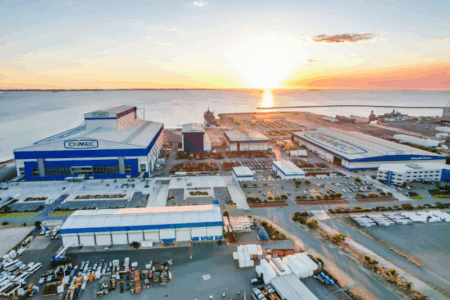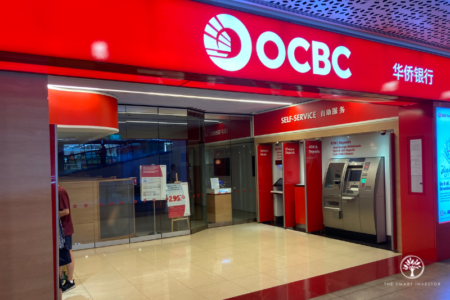Few REITs have been fortunate enough to escape unscathed from the COVID-19 pandemic. There are even fewer that have been able to thrive this year.
Elite Commercial REIT (SGX: MXNU) (“Elite”) is one of the fortunate ones.
The REIT’s portfolio consists of 97 mostly freehold commercial buildings located across the UK, taking up around 47 hectares and valued at around GBP 319.1 million as of 31 August 2019.
The sole tenant for all these properties is the Department for Work and Pensions (DWP), the UK’s largest public service department.
This department is responsible for the welfare, pensions and child maintenance for more than 20 million claimants, and is a crucial piece of public infrastructure for the UK government.
Due to the economic crisis, the DWP plans to hire 4,500 more employees to add on to the current 13,000 to cater to rising unemployment.
Another 9,000 need to be hired by March 2021 as the unemployment rate is projected to spike up from the current 4.1% to 7.5%.
Elite recently announced its maiden acquisition since its IPO in February this year, adding on to the flurry of acquisitions announced by various REITs such as Suntec REIT (SGX: T82U) and Mapletree North Asia Commercial Trust (SGX: RW0U) in the last few weeks.
Details of the acquisition
Elite will purchase a total of 58 commercial properties, also located across the UK, from one of the subsidiaries of its sponsor.
The agreed value for the transaction is GBP 212.5 million and the properties enjoy 100% occupancy.
The new properties have a weighted average lease expiry (WALE) of 7.4 years, and the tenants are responsible for all expenses relating to repairs and maintenance for the buildings.
The acquisition will be financed by a combination of debt, consideration units to PartnerRe, an investor in the vendor, and an equity fundraising.
Post-transaction, PartnerRe will become the largest investor in Elite with around 21% stake.
Here are three reasons why we think Elite’s acquisition is a great move.
Reason 1: Diversifying tenant mix
Before the acquisition, Elite only had one sole tenant: DWP.
Although this tenant has proven to be resilient and even had plans to expand its headcount during this crisis, the presence of just a single tenant exposes the REIT to concentration risk.
Of the 58 properties acquired by the REIT, the DWP still makes up around 81.5% of gross rental income (GRI), but the remaining 18.5% is shared between other government agencies.
Some examples include the Ministry of Defence, National Records of Scotland and Natural Resources Wales, which make up 5.6%, 4.8% and 2.9% of GRI, respectively.
Reason 2: Gaining exposure to London
36% of the new properties are located in London, as compared to none in Elite’s original IPO property portfolio.
The advantage of having London properties is that they have higher growth and redevelopment potential and are also more liquid, making them easier to sell if need be.
Furthermore, all the London assets are on freehold tenure and are on a straight 10-year lease expiring in March 2028, with no break clauses (i.e. the tenant has no contractual right to terminate the lease).
When added to the REIT, London now takes up around 14% of its enlarged portfolio’s asset value.
Investors should note though that one downside of London properties is their lower rental yield of 4.3% versus the existing portfolio’s rental yield of 7.3%.
Reason 3: DPU accretive
Most important of all for income-seeking investors, the acquisition will be accretive to distribution per unit (DPU).
Pro-forma DPU is estimated to rise by 3.2% from 1.95 pence to 2.02 pence for the period 6 February till 30 June.
Investors will recall that the 1.95 pence declared and paid out when the REIT announced its maiden earnings back in July was 1% higher than the 1.93 pence forecasted.
Get Smart: Enhanced resilience and added diversification
This acquisition by Elite is timely as the pandemic has highlighted the resilient nature of the REIT’s assets.
By having a dominant, counter-cyclical government agency as its key tenant, investors need not worry about possible downtime or the REIT’s assets being underutilised.
Besides, the acquisition comes with a host of benefits as stated above and will also increase DPU for investors.
As the leases come with rental escalation clauses, investors can look forward to increasing DPU over the years through organic growth in GRI.
One risk to watch for is the fluctuating British Pound, as Brexit negotiations have stalled for now.
The movement of the pound will impact the level of distribution investors receive should they elect to receive their DPU in Singapore dollars.
As an investor, you might wonder what the future holds for the REITs in your portfolio. Or how to select REITs that can make you money as Singapore’s economy struggles to recover from the pandemic.
Download your FREE special REITs report: “How You Can Make Money Investing In REITs As Singapore Recovers” HERE!
Disclaimer: Royston Yang owns shares in Suntec REIT.





